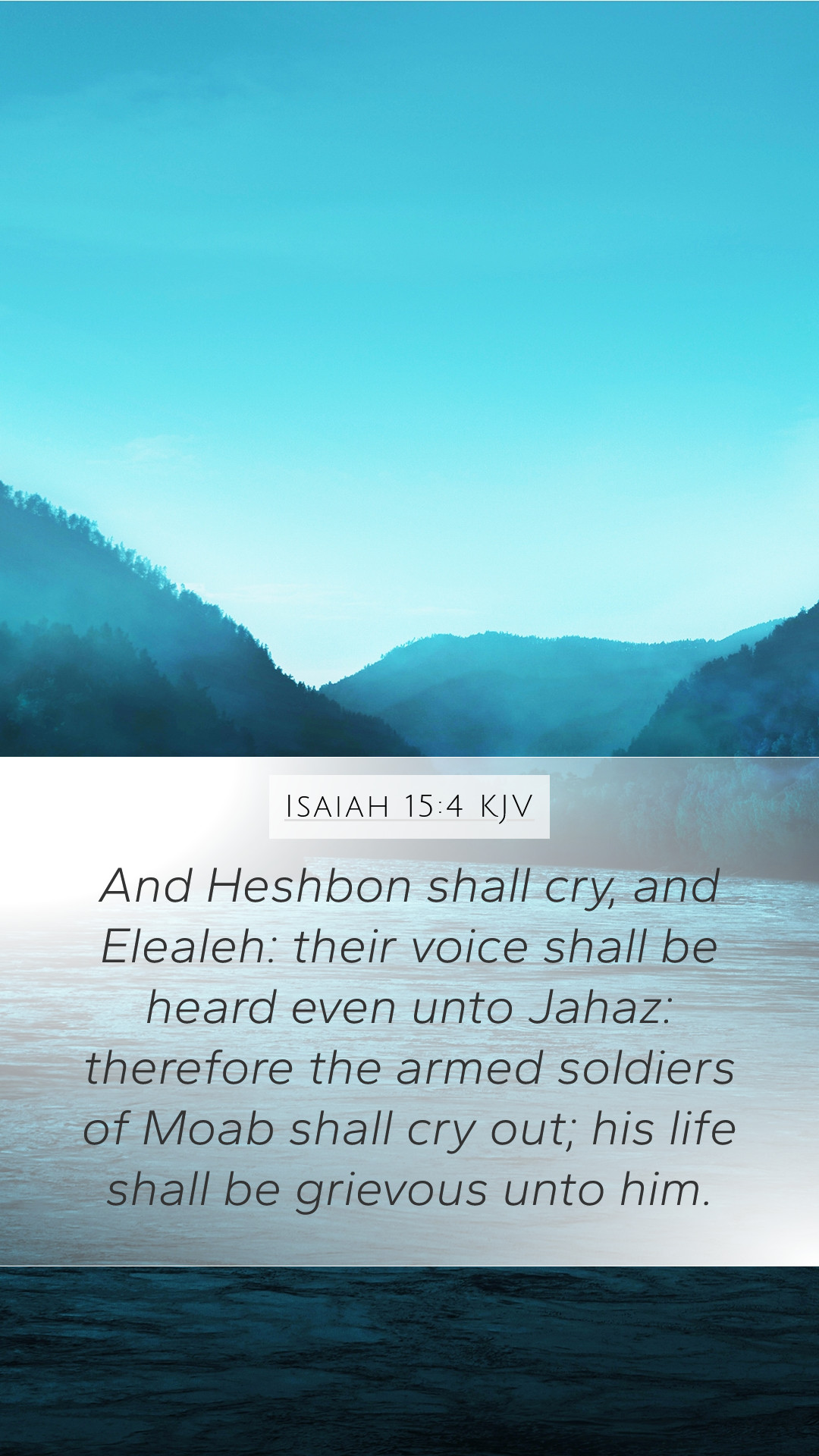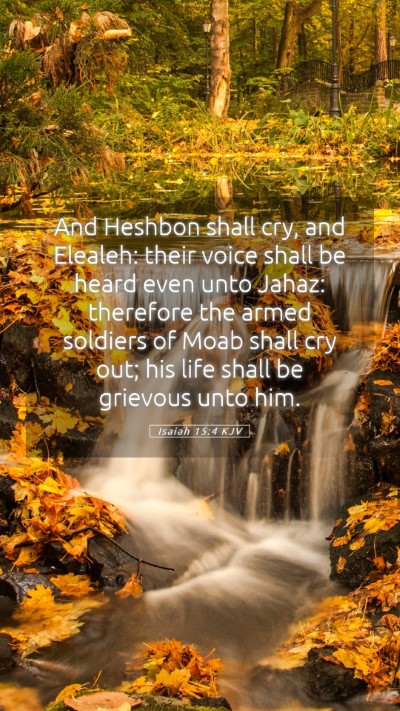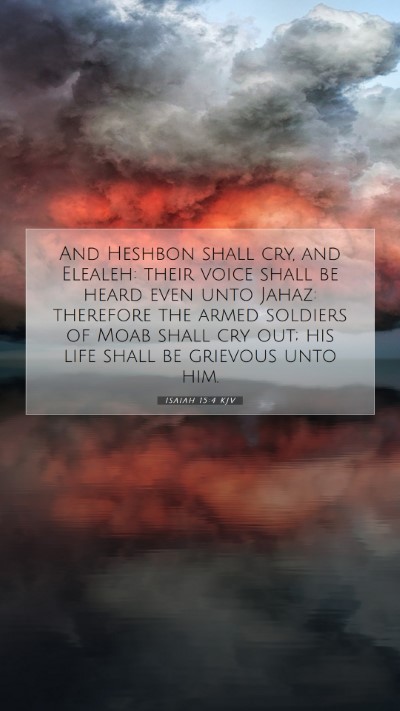Understanding Isaiah 15:4
Isaiah 15:4 states:
"And the inhabitants of the land of M oab shall cry out; their soul shall be as a hungry lion." (Isaiah 15:4, KJV)
This verse depicts a time of calamity for the people of Moab, illustrating their despair and desperation through vivid imagery. Let's delve deeper into the meaning of this passage through combined insights from public domain commentaries.
Verse Context and Analysis
In this portion of Isaiah, the prophet speaks about the impending judgment upon Moab. Understanding this verse requires a broad view of both the textual context and historical background of Moab.
Historical Context
Moab, located east of Israel, had a tumultuous relationship with the Israelites throughout biblical history. Its people were often in conflict with Israel, and as such, prophetic warnings were directed towards them. This verse is situated within a larger prophecy concerning the destruction of Moab, seen in the chapters leading up to this verse.
Verse Meaning
When we analyze this verse, various themes emerge:
- Desperation: The phrase "shall cry out" indicates the depth of their anguish. The inhabitants of Moab are not just lamenting; they are representative of a people who have lost hope.
- Symbolism of the Lion: The comparison of their souls to a "hungry lion" signifies a strong hunger for relief, justice, or salvation amidst chaos. This powerful metaphor emphasizes their innate needs and drives.
- Collective Grief: The use of "inhabitants" signifies not just individual suffering but a shared collective struggle faced by all of Moab's people.
Insights from Commentaries
Matthew Henry's Commentary
Matthew Henry elaborates on this verse by emphasizing the urgency of the cry coming from Moab. He suggests that such collective mourning illustrates God's judgment upon nations that oppose Him. The lion's hunger metaphorically showcases spiritual desperation, likening it to a person in need of divine intervention.
Albert Barnes' Notes on the Bible
Albert Barnes enriches our understanding by mentioning that the cry of Moab signifies their awareness of impending doom. He notes the historical significance of this judgment as a consequence of their idolatry and strife against the Israelites. Barnes also reflects on the emotional aspects of this cry, demonstrating that it resonates with universal themes of human suffering.
Adam Clarke's Commentary
Adam Clarke provides additional depth by discussing the condition of the Moabites, which served as a backdrop for their plea. He highlights that their cry is not merely for physical sustenance, but represents their spiritual barrenness in the face of God’s judgment. Clarke ties the imagery of the lion with the lack of spiritual nourishment, indicating a broader spiritual significance in their plight.
Application and Reflection
In personal and communal Bible study contexts, Isaiah 15:4 encourages reflection on the nature of desperation and the human cry for help. Here are some reflections for Bible study groups:
- How do we respond to our own spiritual hunger?
- What does it mean to cry out for help in our community?
- How can we help those who are in dire need around us?
Cross References
This verse relates closely to other scriptures that depict a similar tone of lamentation and recognition of judgment:
- Isaiah 16:9-11: A continuation of Moab's lament.
- Jeremiah 48:1-47: Describes coming judgment and sorrow of Moab.
- Lamentations 1:18: A cry of desperation reflecting on sin and suffering.
Conclusion
Isaiah 15:4 serves as a poignant reminder of the spiritual realities of desperation and the need for divine help. Through a combination of historical context, scriptural analysis, and commentary insights, we gain a deeper understanding of the profound implications of this verse in our pursuit of Bible verse meanings and interpretations.


